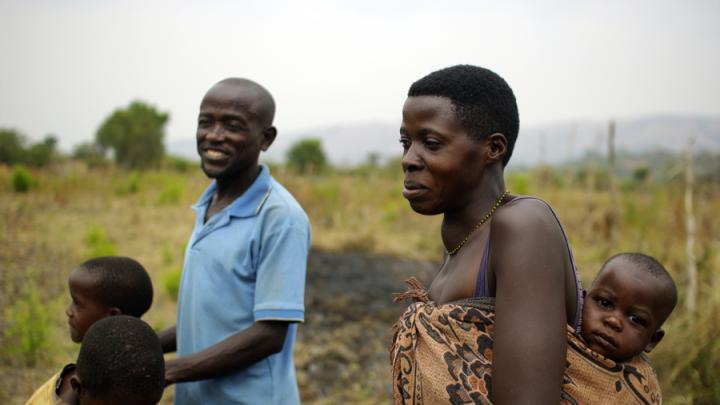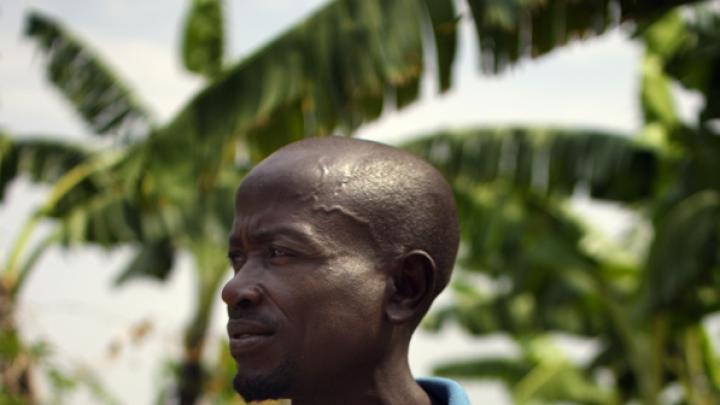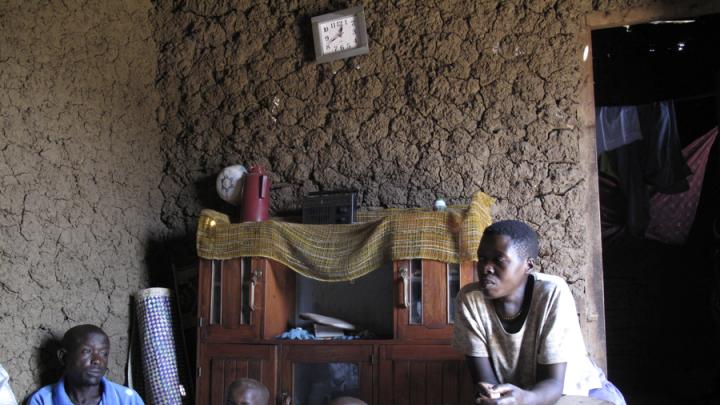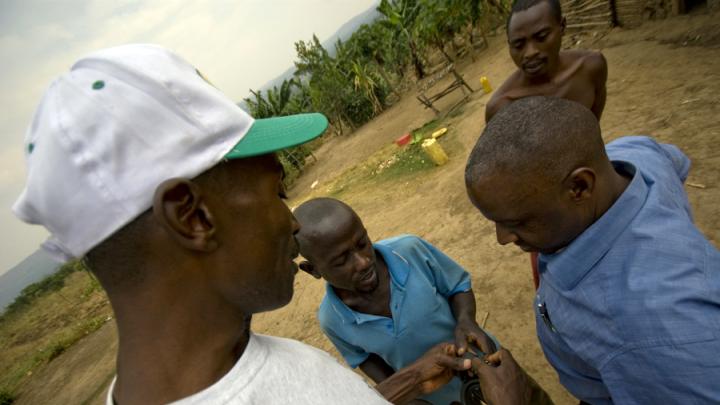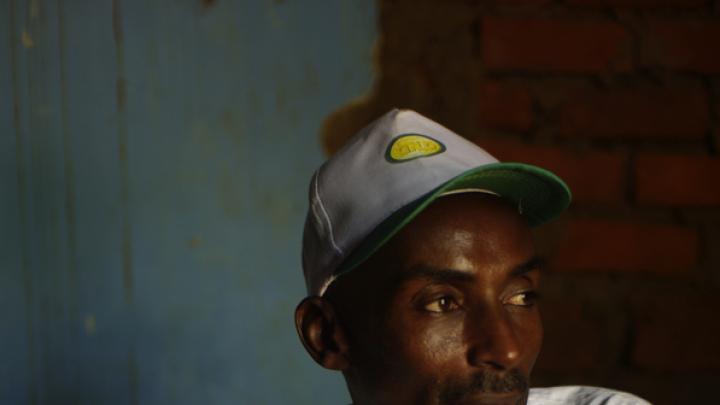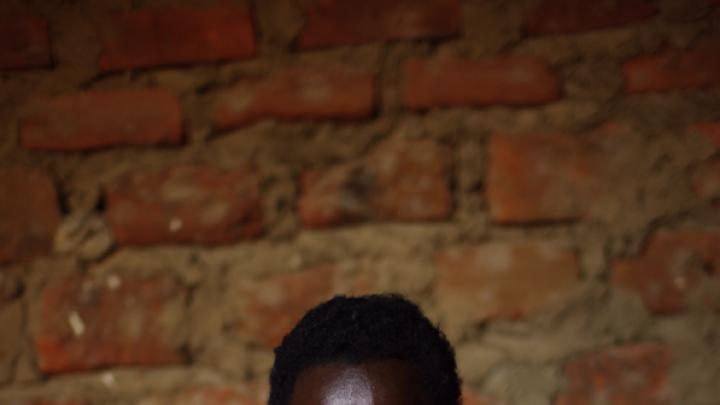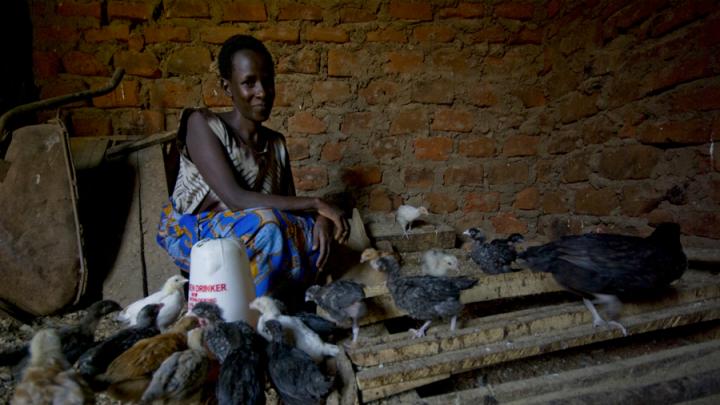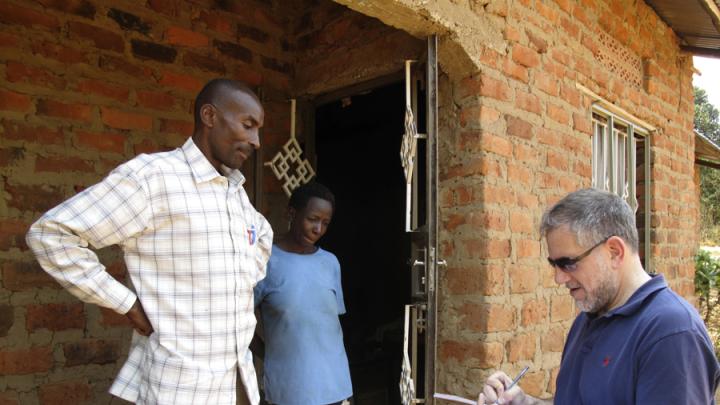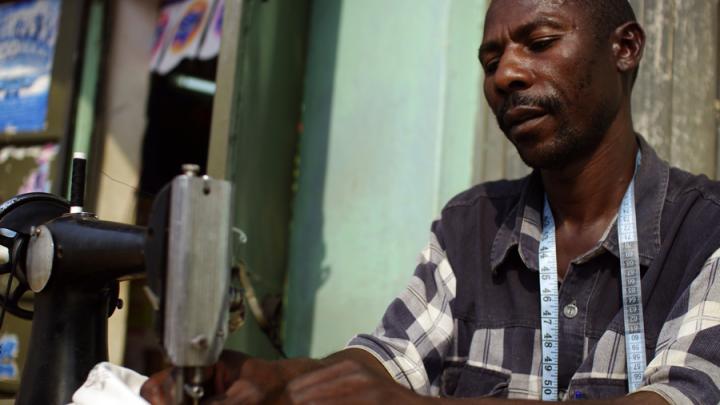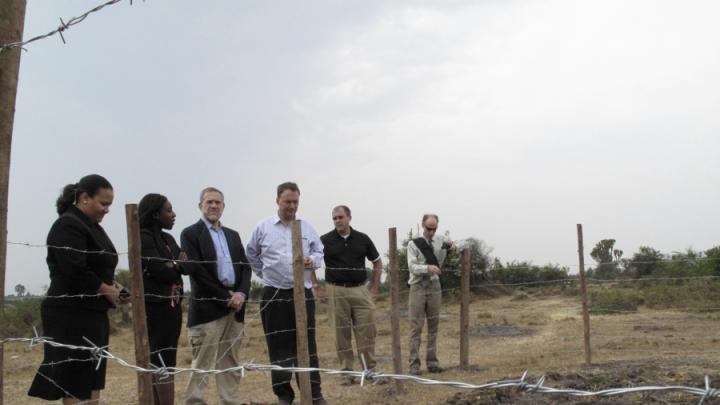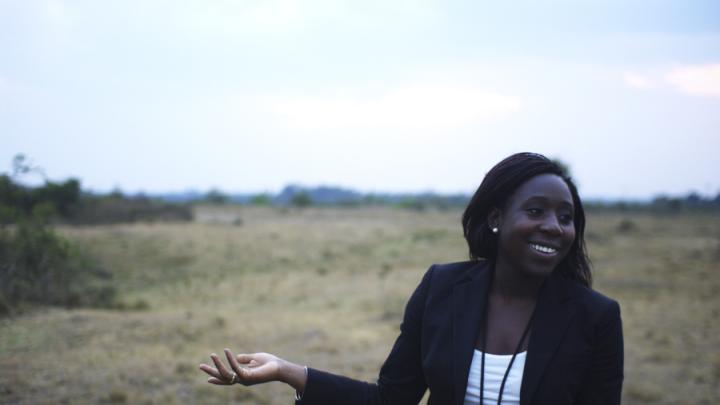In Uganda, there is a hierarchy of houses. The poorest live in huts made of dung. Mud is a step up; brick with mud walls, one more. Next comes brick-and-mortar; stucco over the brick says someone has really made it. The roof makes a statement too: it can be thatch, metal, or tile.
Jacinta Nshemereirwe lives in a big brick-and-mud house with a metal roof. It has steel doors and wrought iron over the windows. “Jacinta was one of our first clients,” Elijah Musinguzi says with obvious pride. Musinguzi directs the Sustainable Household Income Project, or SHIP, part of a partnership between Harvard and Mbarara University of Science and Technology (MUST) in southwestern Uganda.
Nshemereirwe and her husband, Edward Kataraikabo, tested positive for HIV in 2001; since they began antiretroviral therapy (ART) in 2005, they have grown strong again. Edward works as a builder; Jacinta manages the family farm. With a small loan from SHIP, she started with five chickens and a few hot-pepper plants; today she has more than 200 chickens, and grows bananas, coffee, avocados, papayas, and jackfruit. Theirs is a cheerful house, with five children, ages 3 to 17, all healthy. “What pleases us most,” Jacinta says through Musinguzi’s translation, “is to see that we started small and we are growing bigger now.” She tells Elijah and the foreign visitors he introduces that if it were not for SHIP, she would have died a long time ago.
ART has been free in Uganda since 2004 for most patients who need it, the cost covered by the government, foreign governments, and charities (although waiting lists have recently reappeared). But even with the cost of the drugs covered, transportation to a clinic can cost up to 40,000 shillings (about $20) each month. And the drugs can make people hungry: a side effect of AIDS is loss of appetite, but when a patient’s viral load comes down and her immune-cell count rises, her appetite comes back. If she’s short on food, all of a sudden she’s agonizingly hungry, when before she got by just fine.
The SHIP program—coordinated by David Bangsberg, a lecturer in medicine at Harvard Medical School who heads the Center for Global Health at Massachusetts General Hospital (MGH)—lends small sums for buying livestock, seeds, and other startup materials for farming, among other ways of generating income that can help people with HIV feed their families, pay their way to clinic, and generally attain a standard of living that supports taking care of their health.
Another SHIP participant, Bashir Barigye, lives on a flourishing farm with his wife, Hajara, and their four children (ages 1 to 9, all healthy). Giving a tour, Barigye leads visitors through groves of papayas, matoke (small local bananas), avocados, passionfruit, oranges. The family has just rented a patch of land where they will grow new crops: maize, beans, and groundnuts. Barigye says the idea of educating his children inspires him to work hard and earn enough to pay their school fees: he himself had to drop out of school after the fifth grade. The family lives in a mud house now, but Barigye is building a new home of brick. He expects that it will be ready in a year. SHIP has allowed him to make plans again.
SHIP director Musinguzi was one of the first people Bangsberg met after he began working in Mbarara in 2003. (Bangsberg, then an associate professor at the University of California-San Francisco, came to Harvard in 2008.) At the time, Musinguzi’s CD4+ cell count was 100. (Between 500 and 1,500 is considered the normal range for this marker of immune function.) He had tuberculosis and meningitis. He had been leading an educational song-and-dance troupe to combat HIV stigma in local villages, but was so sick that he had to give it up. Says Bangsberg, “I realized that if we could get Elijah on treatment, we could help many others.” He began treatment with funding from the Family Treatment Fund (which Bangsberg founded at UCSF, and which is now housed at MGH). When the Ugandan government began paying for ART in 2005, Musinguzi was the first person in southwest Uganda to enroll; today his CD4+ count is above 800.
SHIP participants are expected to repay their loans, but this isn’t essential to the program’s continued operation; it is relatively cheap to run and is funded by private donors Dan and Marjie Sullivan through MGH. For example, it costs about $250 to put together a chicken coop, and $80 or $90 to set someone up to grow passionfruit—an initial planting of with five fruits yields 300 on the vine. The payback requirement gives participants more of a stake in the program, Bangsberg explains; the program also includes budgeting workshops.
The SHIP participants now number “a couple of dozen”—a count Bangsberg aims to expand. And the program is branching out into new ventures such as cultivating lemongrass. On land borrowed from MUST, which sees the SHIP connection as a boon to its own development-studies program, SHIP participants have planted 65 hectares of the crop. A distillery is under construction to extract the oil from the raw plant; SHIP will pursue certified organic status for the product and hope to sell the oil to tourists in a café and gift shop on the same site. Because it sits along a major highway leading to a national park where many tourists visit, Bangsberg believes “a place to enjoy the view over a cup of great coffee,” and to buy soaps and lotions made from essential oils, could be a big hit.
The important thing, say Bangsberg and SHIP coordinator Nkechi Onyeji, is to get participants loans for occupations they want to pursue and will succeed at. Not everyone is cut out to be a farmer; one participant used his loan to buy a sewing machine and now works as a tailor. And participants are encouraged to diversify: some of the people who run their own small farms may also help with the lemongrass effort. Says Onyeji, “We want them to have one or two other things going if the first one fails or doesn’t grow.”
